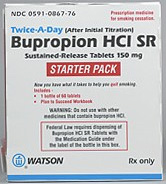Pamelor, also known by its generic name Nortriptyline, is a tricyclic antidepressant commonly prescribed for the treatment of depression and various types of nerve pain. It belongs to the class of drugs called tricyclic antidepressants (TCAs) and works by increasing the levels of certain chemicals in the brain that help improve mood and relieve pain.
Pamelor is available in the form of oral capsules and is typically taken once or multiple times daily, as prescribed by a healthcare professional. It is important to follow the dosage instructions provided by your doctor and never exceed the recommended dose. The prescribed dosage may vary depending on the individual’s condition, age, and response to treatment.
“When Not to Take Pamelor”
Pamelor should not be taken under certain circumstances due to the potential risks and complications it may pose. It is advised to avoid Pamelor if:
- You have a known allergy or hypersensitivity to Nortriptyline or any of the other ingredients in Pamelor.
- You have recently experienced a heart attack.
- You are currently taking or have taken a monoamine oxidase inhibitor (MAOI) within the last 14 days, as combining Pamelor with MAOIs can cause serious reactions.
- You have been diagnosed with narrow-angle glaucoma.
- You are undergoing or have recently undergone treatment with cisapride, a drug that affects heart rhythm.
It is crucial to inform your healthcare provider about any medical conditions or allergies you have before starting Pamelor to ensure its safe use.
“Adverse Reactions”
Like any medication, Pamelor may cause certain side effects in some individuals. Common side effects associated with Pamelor include:
- Drowsiness
- Dizziness or lightheadedness
- Dry mouth
- Blurred vision
- Constipation
- Sweating
- Weight gain or loss
These side effects are usually mild and temporary, but if they persist or worsen, it is recommended to inform your doctor. Additionally, Pamelor may also cause more severe side effects in rare cases, such as:
- Confusion or disorientation
- Irregular heartbeat
- Fainting or severe dizziness
- Seizures
- Difficulty urinating
- Uncontrolled shaking or tremors
If you experience any of these serious side effects, seek immediate medical attention. It is essential to weigh the potential benefits of Pamelor against the risks of side effects before starting the medication.
“Dosage Guide”
The dosage of Pamelor prescribed by your healthcare provider may vary depending on your specific condition. It is important to follow the prescribed dosage instructions and not exceed the recommended dose. Typically, the recommended initial dose for adults is 25 mg to 50 mg of Pamelor taken orally, divided into multiple doses throughout the day.
If a dose is missed, it should be taken as soon as remembered unless it is too close to the next scheduled dose. In such cases, the missed dose should be skipped, and the regular dosing schedule should be continued. It is important not to double the dose to make up for a missed one.
In the event of an overdose, contact a poison control center or seek immediate medical attention. Symptoms of overdose may include severe drowsiness, rapid heartbeat, confusion, hallucinations, seizures, and difficulty breathing.
“Mixing with Other Drugs”
Pamelor may interact with certain medications, potentially leading to adverse effects or reducing the effectiveness of either drug. It is crucial to inform your doctor about all the medications, supplements, and herbal products you are currently taking to avoid potential drug interactions. Some drugs that may interact with Pamelor include:
- Monoamine oxidase inhibitors (MAOIs)
- Anticoagulants
- Anticonvulsants
- Benzodiazepines
- Antidepressants
- Sedatives
Your doctor will carefully consider these interactions and adjust your medication regimen accordingly to ensure your safety and optimize treatment effectiveness.
“Pamelor: Inquiry and Response”
- Q: Can Pamelor be used for conditions other than depression and nerve pain?
- Q: How long does it take for Pamelor to start working?
- Q: Can Pamelor be taken during pregnancy?
- Q: Can Pamelor cause addiction?
- Q: Can Pamelor be taken with alcohol?
A: Yes, Pamelor may also be prescribed for the treatment of various anxiety disorders and certain types of migraines. However, its off-label use should be determined by a healthcare professional.
A: The therapeutic effects of Pamelor may take several weeks to become noticeable. It is important to follow the prescribed dosage consistently for optimal results.
A: The use of Pamelor during pregnancy is generally not recommended unless the potential benefits outweigh the risks. Consult with your doctor to evaluate the specific situation.
A: Pamelor is not considered addictive. However, sudden discontinuation of the medication may lead to withdrawal symptoms. It is advisable to gradually reduce the dose under medical supervision if discontinuing Pamelor.
A: It is generally recommended to avoid consuming alcohol while taking Pamelor to minimize the risk of increased drowsiness or other adverse effects.






Reviews
There are no reviews yet.